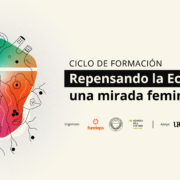The High Court of Justice and its doctrine on femicides
The High Court of Justice of the province of Córdoba (TSJ), established the criteria on how cases of femicide should be treated, confirming Gonzalo Lizarralde’s life sentence for the crime of Paola Acosta, stating that he measured gender violence And it was a femicide.
“Below, we offer a google translate version of the original article in Spanish. This translation may not be accurate but serves as a general presentation of the article. For more accurate information, please switch to the Spanish version of the website. In addition, feel free to directly contact in English the person mentioned at the bottom of this article with regards to this topic”
The sentence of the 11th Chamber of the Crime, reviewed by the TSJ, had condemned Lizarralde to life imprisonment for homicide classified as treachery against Paola Acosta and for homicide qualified for the bond and for treachery in an attempt against his Daughter, MA Both the defense and the complaint married this sentence and the TSJ was issued last month confirming the conviction, but with the aggravating of femicide.
The Chamber had dismissed the application of this aggravating factor because it understood that there had been no gender violence, stating that “Acosta and Lizarralde had an informal and short-lived relationship of a few months.” The Chamber also pointed out that the personal characteristics of the victim prevented the application of the femicide figure, since it was a woman who “was not docile” and who “decided to empower herself in defense of her rights and those of her daughter” .
The TSJ ruling is the first of this court that addresses the figure of femicide, which is why they established their interpretive criteria.
In principle, it clarifies that in this case it was a case in which a man assaulted against a woman using gender violence, and considered that Lizarralde committed the homicide against Acosta based on gender bias
Consider, it is not essential that there is a stable, formal or cohabiting relationship. Homicide must occur in a context in which women are in conditions of inequality with respect to men. This context must be evaluated by the judge according to each specific case, but no personal characteristic can be demanded in the victim (that is submissive or of weak character, for example).
It is especially important to note that the TSJ took into account that the femicida understood that she would not resign her personal choices to the responsibility that takes care of a girl’s care, which led him to overcome the burden of pregnancy and the assistance of his Daughter, leaving everything in the hands of the victim for three years. This left Paola in a situation of vulnerability and inequality, which she herself sought to reverse through a family judicial process. The death of Paola meant to impose the plans of life of the femicide over those of the victim and his daughter.
We welcome this judicial pronouncement because we believe it is essential to raise awareness and raise awareness of this extreme form of violence, which is only the last step in violence against women. The aggravating factor of femicide acts when the damage is already done, which makes it necessary to accompany this type of actions with policies aimed at prevention.
In times of intense debate about the State’s punitive response to violence against women, which has proven to be insufficient, we insist on a comprehensive and preventive approach that includes violence in all its forms.
More information
- Judgment “Lizarralde, Gonzalo Martín p.s.a. Qualified homicide and homicide qualified in degree of intent -Recurso de Casación“
Author
Mayca Balaguer
Contact
Virginia Pedraza – vir.pedraza@fundeps.org











